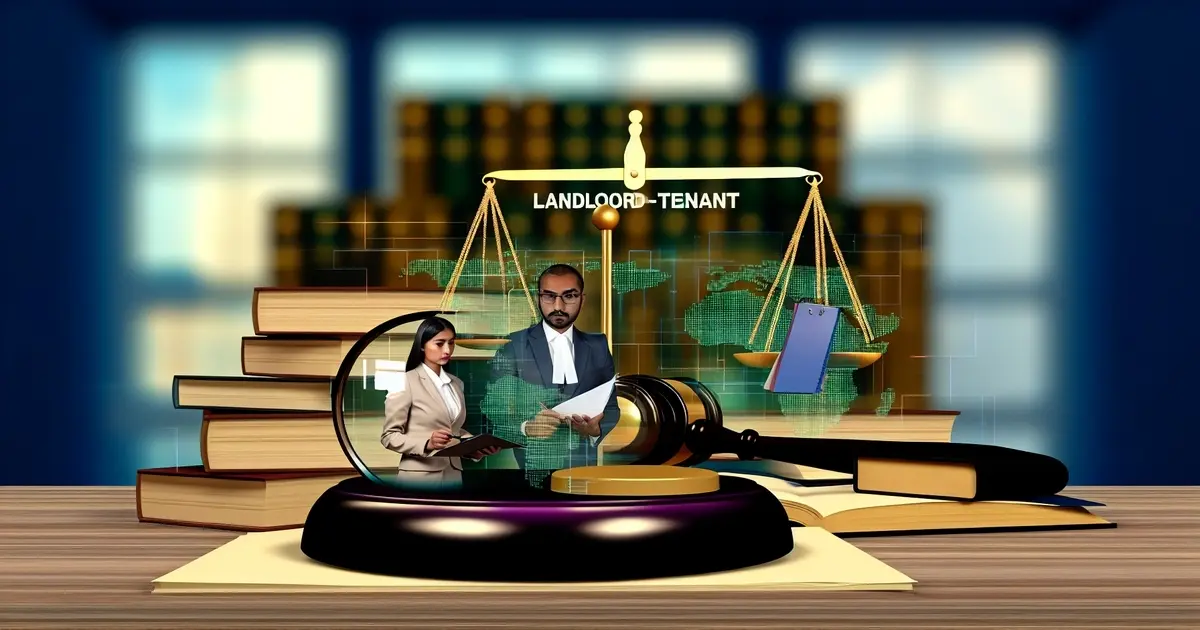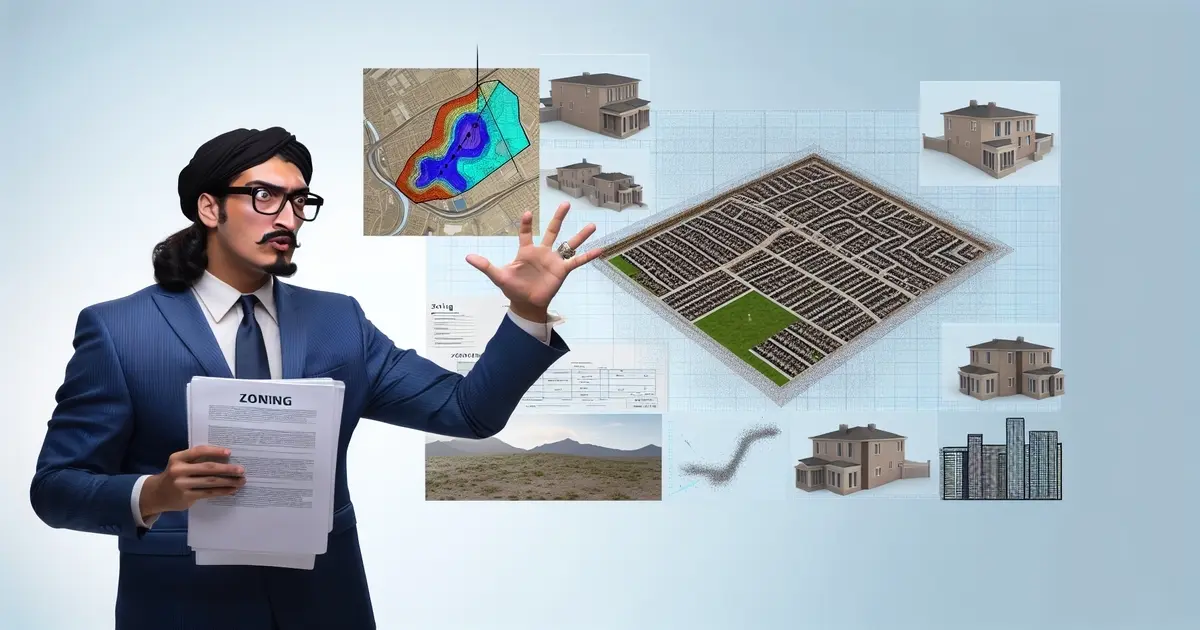Landlord-Tenant Lawyer: Essential Guide to Legal Help
Navigating the complex world of landlord-tenant laws with the assistance of a rental attorney can feel like trekking through a legal maze without a map, especially when dealing with extensive documentation and business-related issues. On one side, landlords aim to protect their property and ensure a steady income, while on the other, tenants seek safe and affordable housing rights. This is where understanding what a landlord-tenant lawyer and attorneys with knowledge in this business become crucial to help.
These legal experts, experienced landlord and tenant attorneys from a law office, serve as navigators in disputes, offering clarity, resolution, and help. Whether you're facing eviction, battling over security deposits, or need guidance on lease agreements, a landlord-tenant lawyer or attorney ensures your rights aren't just words on paper but shields in action, regardless of the type of fee. Dive into the realm of these legal champions, including tenant attorneys from a law office, to discover how they balance scales in real estate's dynamic battlefield, especially under the residential landlord-tenant Act.
Table Of Contents
Understanding Landlord-Tenant Law
Lease Basics
Lease agreements are the foundation of tenant law. They outline the rights and obligations of both parties involved: the landlord and the tenant. These documents, prepared by law office tenant attorneys, must clearly state who is leasing the property, where the property is located, how long the lease will last, and how much rent will be paid. This ensures that landlords and tenants clearly understand from the start.
Leases are not just simple agreements. They combine elements of fundamental property law with contract law. In places following common law traditions, these elements are crucial for defining the relationship between landlords and tenants. Meanwhile, in civil law jurisdictions, statutes primarily govern these relationships.
Rights and Duties
Understanding your rights and duties under landlord-tenant law, potentially with the help of an attorney, is essential whether you're renting out a property or living in one. For tenants, this includes knowing about security deposits, what constitutes fair wear and tear versus actual damages, and their right to a habitable living environment. Landlords must understand their responsibilities regarding property maintenance and their rights in eviction cases, including consulting a tenant attorney.
The specifics can vary widely from one location to another since housing laws are subject to local, state, and federal regulations. Both parties and their tenant attorney must familiarize themselves with these laws to avoid legal disputes.
Legal Assistance
Landlord-tenant attorney lawyers specialize in navigating the complexities of rental properties' legal landscape. They are well-versed in everything from drafting leases that comply with local housing laws to representing clients in eviction cases or disputes over security deposits and damages as a tenant attorney.
These experienced attorney professionals are critical in resolving tenant issues efficiently while ensuring that both parties' rights are protected under the Tenant Act. Their expertise as attorneys can save landlords and tenants time, money, and stress by preventing legal issues before they arise or effectively managing them when they do.
When to Hire a Landlord-Tenant Lawyer
Eviction Cases
The stakes are high for landlords and tenants in eviction proceedings, often necessitating an attorney. Landlords must navigate complex legal requirements with an attorney to successfully evict a tenant. They risk costly mistakes if they follow the law precisely, especially without a tenant attorney.
Tenants, on the other hand, face potential homelessness. They need a tenant attorney who understands their rights and can fight for them in court. This lawyer often negotiates terms preventing eviction or buying the tenant more time.
Lease Disputes
Lease agreements are not always clear-cut; disagreements over terms or conditions can escalate quickly. A rental attorney specializes in interpreting lease documents and mediating disputes.
They ensure fair play and adherence to the law. For tenants, this might mean fighting against unreasonable demands or hidden fees with the help of an attorney. Landlords can benefit from legal advice from a tenant attorney on enforcing lease terms while staying within legal boundaries.
Legal Advice
At times, you don't need a lawyer to represent you in court but rather for sound legal advice. Understanding your rights and obligations as a landlord or tenant, with the help of an attorney, can save you from future legal headaches.
A tenant attorney offers invaluable guidance on everything from security deposit laws to property maintenance responsibilities. This proactive approach helps avoid disputes before they arise.
Ongoing Support
Having a dedicated tenant lawyer/attorney on call is beneficial for landlords managing multiple properties. This ongoing legal support from an attorney ensures compliance with changing housing laws and quickly resolves tenant issues.
Tenants also benefit from having an accessible attorney for questions about their lease or landlord's actions. This relationship, bolstered by a tenant attorney, fosters peace of mind and stability in the rental arrangement.

Types of Legal Issues Handled
Eviction Cases
Landlord-tenant lawyers often tackle eviction cases. They help landlords navigate the legal process, with the assistance of an attorney, to remove a tenant who violates their lease. At the same time, they, as attorneys, defend tenants against unjust evictions. This type of case requires thorough knowledge of local laws and regulations by a tenant attorney.
Evictions aren't straightforward. They involve specific procedures landlords must follow. Tenants also have rights that need protection. Lawyers ensure both parties understand their obligations and rights.
Property Damage
Another common issue is property damage claims. Landlords may seek compensation, with the assistance of an attorney, for damages beyond normal wear and tear. Tenants might dispute these claims with an attorney or argue over the security deposit's return.
These disputes can escalate quickly—a landlord-tenant attorney steps in to mediate and find a resolution. If necessary, they assess the damage, review lease agreements, and represent their client in small claims court.
Lease Negotiations
Lease negotiations are crucial moments in which both parties set terms for their agreement. Landlord-tenant attorneys assist in drafting leases that comply with laws while protecting their clients'’ interests.
They address concerns like rent amounts, lease durations, and maintenance responsibilities. Their expertise ensures leases are fair and legally binding.
Discrimination Complaints
Illegal discrimination is a severe issue of housing. It involves unfair treatment based on race, gender, religion, or other protected characteristics. Landlord-tenant lawyers handle these sensitive cases with care.
They support victims of discrimination by filing complaints with appropriate agencies or pursuing lawsuits when necessary.
Housing Code Violations
Housing code violations affect tenants' health and safety. These issues range from inadequate heating to structural hazards, and landlords must address these problems promptly.
Tenants can seek legal assistance when landlords fail to make necessary repairs. Lawyers advocate for their client's right to safe living conditions.
Importance of Legal Representation
Legal Protection
Legal representation is crucial for landlords to avoid costly mistakes and ensure compliance with complex housing laws. Landlords often face legal challenges that, if mishandled, can lead to severe penalties.
A landlord-tenant lawyer specializes in this field. They guide on legal matters, reducing the risk of financial loss. Expert advice from these professionals helps landlords navigate the intricate legal landscape.
Court Navigation
Having an expert to navigate court procedures is invaluable. Landlord-tenant disputes often end up in court, where the legal system can be daunting. A lawyer familiar with court protocols can make a significant difference.
They understand how to present cases effectively, increasing the chances of a favorable outcome. Their expertise in legal services ensures that all necessary documents are prepared and submitted on time. This precision minimizes delays and errors during litigation.
Peace of Mind
The peace of mind that comes with professional legal support cannot be overstated. Landlords have numerous responsibilities and worries. Adding legal issues to this list can be overwhelming.
How to Find a Qualified Lawyer
Bar Associations
Finding a qualified landlord-tenant lawyer can begin with bar association listings. These organizations often maintain directories of lawyers by specialty.
You can access these lists online or by contacting the association directly. They provide a good starting point for identifying legal professionals in your area. Remember, bar associations vet their members, ensuring they meet specific standards.
Recommendations
Another effective method is seeking recommendations from friends, family, or colleagues. Personal experiences can offer valuable insights into a lawyer's effectiveness and demeanor.
Ask about their satisfaction with the communication, outcomes, and overall experience. Personal recommendations add a layer of trust not found in online reviews or listings.
Experience Check
Evaluating a lawyer's experience in landlord-tenant law is crucial. Look for someone who has handled cases similar to yours.
Their track record can give you confidence in their ability to manage your legal issues effectively. Don't hesitate to ask for case studies or references during your search.
Expertise Confirmation
Confirming a lawyer’s expertise, specifically in landlord-tenant matters, is essential. This field of law has its own set of complexities and nuances.
A lawyer specializing in this area will be more equipped to navigate the challenges and opportunities it presents. Their specialized knowledge can make a significant difference in the outcome of your case.
Interview Process
Interview potential lawyers to assess compatibility and understanding of your legal needs. Prepare questions that cover their approach to cases, communication style, and fees.
This conversation will help you gauge whether they grasp the intricacies of your situation. It also allows you to determine if you feel comfortable working with them on what could be sensitive matters.
Using Online Services and Resources
Legal Directories
Finding the right landlord-tenant attorney can be a daunting task. However, online legal directories simplify this process. They offer comprehensive listings of attorneys specialized in landlord-tenant matters. Users can filter their search by location, experience, and area of expertise. This way, finding an attorney who matches your specific needs becomes less time-consuming.
Legal directories not only provide contact information but also include detailed profiles. These profiles often contain information about the attorney's education, years of practice, and areas of specialization. Some even feature client reviews, which can be invaluable in assessing an attorney's effectiveness and client satisfaction.
Reviews and Testimonials
Online reviews and testimonials play a critical role in choosing a landlord-tenant lawyer. They offer insights into the lawyer's ability to handle cases effectively and maintain good client relationships. Positive reviews can indicate a lawyer's competence in managing documentation, navigating legal problems, and offering peace of mind to clients.
However, it's essential to approach reviews critically. Look for patterns in feedback rather than focusing on isolated comments. Consistently positive or negative themes can give you a clearer picture of what to expect from working with a particular lawyer.
Consultation Platforms
Initial consultations are crucial for establishing trust and understanding between lawyers and clients. Many lawyers now offer initial consultations online, making it easier for potential clients to seek legal advice without investing significant time or resources.
These online consultation services often charge a fixed fee for an hour-long session. This allows clients to ask questions about their landlord-tenant issues without worrying about escalating costs. It's also an efficient way to gauge whether the lawyer’s experience and approach align with your needs before proceeding.
Tips for Hiring the Right Lawyer
Clear Communication
Clear communication forms the backbone of a successful landlord-tenant relationship. It's crucial to ensure that your lawyer understands your situation and goals. This mutual understanding paves the way for effective legal strategies tailored to your needs.
You should feel comfortable discussing every aspect of your case with them. If they are not approachable or you struggle to understand their legal jargon, it might be time to look elsewhere. The right attorney will make complex legal concepts understandable and inform you at every step.
Legal Strategies
Discussing legal strategies upfront is essential. Your lawyer should outline a clear plan of action after assessing your case. This plan includes potential challenges and how they intend to address them.
They should also be open about different approaches and their respective outcomes. For instance, negotiation might be preferable over litigation in some cases. Understanding these strategies helps set realistic expectations and prepares you for what lies ahead.
Fee Agreement
Before signing any agreement, it's imperative to understand all legal fees and costs. Attorneys usually charge differently based on the nature of the case—some may require a retainer, while others might work on a contingency basis.
Ask for a detailed breakdown of costs, including hourly rates, court fees, and expenses for paperwork or research. This transparency helps avoid surprises down the line and ensures that the financial aspects of your legal representation are manageable.
Communication Preferences
Your preferred mode of communication should align with that of your attorney. Establishing this early on ensures smooth interactions throughout your case, whether through emails, phone calls, or face-to-face meetings.
Lawyers may prefer digital communication for its efficiency and record-keeping advantages. Others might value personal interactions more. Knowing this beforehand can save time and prevent frustration.

Understanding Fees and Billing
Hourly Rates
Lawyers often charge by the hour for their services. This rate varies based on experience and location. Clients receive detailed billing statements listing the hours worked on their cases.
They should ask for an estimate of how many hours a case might take. This helps in budgeting for legal expenses.
Flat Fees
Lawyers offer flat fees for specific services. This means paying a set amount for a defined task, regardless of time spent.
Flat fees are standard for routine matters like lease reviews or evictions. Clients appreciate the predictability of this arrangement.
Contingency Fees
In some instances, lawyers work on a contingency basis. They only get paid if they win your case or settle it favorably.
The fee is usually a percentage of the settlement or award. It's vital to understand the percentage and what costs might be additional.
Clients benefit from this arrangement as it aligns the lawyer's interests with theirs. However, not all landlord-tenant disputes qualify for contingency fees.
Transparency and Negotiation
Transparency in billing is crucial. Lawyers should provide detailed invoices explaining charges. This avoids surprises and builds trust between the client and the lawyer.
If fees seem high, clients can negotiate payment plans or alternative arrangements. Some lawyers are open to adjusting their billing practices to accommodate clients' financial situations.
Understanding these billing practices helps make informed decisions when hiring a landlord-tenant lawyer. After learning about tips for hiring the right lawyer, knowing about fees and billing is equally essential. It ensures that clients are prepared financially and can focus on resolving their disputes without worrying about unexpected legal costs.
Creating Effective Lease Agreements
Legal Drafting
A landlord-tenant lawyer plays a pivotal role in crafting lease agreements. They ensure these documents are not only comprehensive but also legally sound. This is crucial for protecting landlords' interests while adhering to real estate laws.
Landlords often overlook specific legal nuances that can lead to disputes. A skilled lawyer, however, knows how to navigate these complexities. They incorporate clauses that safeguard the landlord's rights without violating legal standards. This meticulous attention to detail prevents future conflicts and legal headaches.
Clauses Inclusion
Incorporating specific clauses is vital for a robust rental agreement. These clauses cover various scenarios, from property damage to late rent payments.
For instance, a well-drafted lease will clearly outline the responsibilities of both parties regarding repairs and maintenance. It will also detail the process for handling late payments and penalties. Landlords significantly reduce their risk of facing unexpected issues by covering these bases.
Regular Updates
The legal landscape constantly evolves, particularly in real estate and rental agreements. Thus, landlords need to review and update their lease documents regularly.
With the assistance of a landlord-tenant lawyer, landlords can adapt their leases to reflect changing laws and circumstances. This proactive approach ensures that rental agreements remain relevant and enforceable. It also demonstrates a commitment to fairness and legality, which can strengthen the landlord-tenant relationship.
Regular updates with legal guidance help landlords avoid changes in housing regulations or local ordinances that might affect their rental properties.
Final Remarks
Navigating the complexities of landlord-tenant law doesn't have to be a solo journey. Whether drafting lease agreements, facing legal issues, or seeking advice, having a skilled lawyer can make a difference. Your rights and interests deserve top-notch protection, precisely what a landlord-tenant lawyer offers. From understanding the nitty-gritty of legal representation to choosing the right lawyer for your needs, the path to safeguarding your property or tenancy rights is more precise now.
Don't wait for disputes to escalate. Take action today by seeking the expertise of a qualified landlord-tenant lawyer. Remember, knowledge is power, but applying that knowledge through professional legal assistance is your best defense and offense in real estate. Protect your investments and peace of mind by partnering with a legal expert who understands your needs and fights for your rights.
Frequently Asked Questions
What is a landlord-tenant lawyer?
A landlord-tenant lawyer specializes in legal issues surrounding rental agreements. They represent either landlords or tenants and handle disputes, evictions, lease negotiations, and compliance with housing laws.
When should I hire a landlord-tenant lawyer?
Hire a landlord-tenant lawyer when facing eviction, disputing security deposit returns, negotiating complex leases, or dealing with housing discrimination. Their expertise is crucial for navigating these legal challenges effectively.
What legal issues can a landlord-tenant lawyer or a rental attorney handle for many landlords, including those related to a rental or lease agreement?
They manage various issues, including lease drafting and disputes, eviction proceedings, security deposit controversies, property damage claims, and compliance with local and federal housing regulations.
Why is legal representation important in landlord-tenant disputes?
Legal representation ensures your rights are protected under the law. A knowledgeable lawyer can navigate the complexities of housing regulations, prevent costly mistakes, and secure a favorable outcome.
How do I find a qualified landlord-tenant lawyer?
Start by seeking referrals from trusted sources or using reputable online legal directories. Look for lawyers with experience in landlord-tenant law and check their reviews and ratings for credibility.
Can I use online services to find a landlord-tenant lawyer, often a rental attorney, to assist with issues many landlords face regarding the rental agreement?
Yes, online platforms offer access to directories and resources to help you find qualified lawyers specializing in landlord-tenant matters. Ensure you choose reputable services to connect with experienced professionals.
What should I consider when hiring the right lawyer?
Focus on their experience in landlord-tenant law, success rate in similar cases, communication skills, and fee structure. A good fit will understand your situation and propose clear strategies for resolution.
How do landlord-tenant lawyers, often called rental attorneys, handle fees and billing in rental or lease agreements?
Fees vary widely; some lawyers charge hourly rates while others may offer flat fees for specific services like lease review. Discuss billing practices upfront to avoid surprises.
Related Post
Zoning and Land Use Lawyer
Navigating the complex web of regulations, including real estate law, zoning ordinances, restrictive covenants, and planning commissions, that dictate how land can be used often feels like an impossible challenge for property owners and developers.
Read MoreSports Lawyer
Have you ever wondered what stands between a promising athlete's career and the legal hurdles that could derail it? A sports attorney, often supported by sports law attorneys and other sports law practitioners, including a sports agent, plays a crucial role.
Read MoreSports Organization Governance Lawyer
Navigating the complex world of sports organization governance requires a specialized skill set that blends legal expertise with a deep understanding of the sports industry's unique dynamics, including administrative law and critical issues.
Read MoreMedical Innovation Lawyer
Have you ever wondered how groundbreaking medical technologies from innovative healthcare and health technology companies navigate the complex web of legalities with sophisticated health law technology to reach the market as a healthcare innovator?
Read MoreBioethics Lawyer
In the ever-evolving landscape of medicine and technology, where groundbreaking advancements can sometimes blur the lines of ethical boundaries, bioethics lawyers stand as crucial navigators.
Read MoreHealth Insurance Lawyer
Over 8% of Americans find themselves wrestling with health insurance claims and fraud issues each year, revealing a complex system of laws and benefits that often feels like it's designed to be confusing.
Read More






